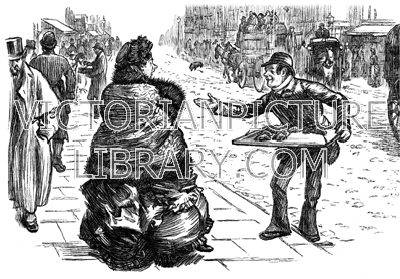
When I was an undergraduate history student the one book anyone doing the honours course was required to address was What Is History? by the renowned “red” historian of Soviet Russia, Edward Hallet Carr. One claim Carr made in the book was particularly controversial. It was his idea of what counted as a “historical fact”. For those who are rushing through, the gist of what he said was that X is not a historical fact unless and until a historian writes about it and uses it to successfully support a hypothesis that is accepted by his academic peers. For those who are not so pressed for time, here are Carr’s own words:
Let us take a look at the process by which a mere fact about the past is transformed into a fact of history. At Stalybridge Wakes in 1850, a vendor of gingerbread, as the result of some petty dispute, was deliberately kicked to death by an angry mob. Is this a fact of history ? A year ago I should unhesitatingly have said ‘no’. It was recorded by an eye-witness in some little-known memoirs2; but I had never seen it judged worthy of mention by any historian. A year ago Dr Kitson Clark cited it in his Ford lectures in Oxford.3 Does this make it into a historical fact ? Not, I think, yet. Its present status, I suggest, is that it has been proposed for membership of the select club of historical facts. It now awaits a seconder and sponsors. It may be that in the course of the next few years we shall see this fact appearing first in footnotes, then in the text, of articles and books about nineteenth-century England, and that in twenty or thirty years’ time it may be a well-established historical fact. Alternatively, nobody may take it up, in which case it will relapse into the limbo of unhistorical facts about the past from which Dr Kitson Clark has gallantly attempted to rescue it. What will decide which of these two things will happen ? It will depend, I think, on whether the thesis or interpretation in support of which Dr Kitson Clark cited this incident is accepted by other historians as valid and significant. Its status as a historical fact will turn on a question of interpretation. This element of interpretation enters into every fact of history.
(Carr, p. 12)

Our interest is generated by the context of asking questions about ancient history and particularly the Bible. I have addressed the question from several angles relating to what we know of how historians (e.g. Thucydides) who lived in ancient times worked and in how historians (e.g. Finley) of ancient times make judgements about the ancient sources. Here we look at a more general discussion of how historians decide what is a fact.
Did It Actually Happen? (Getting Muddled with Philosophy)
Notice that Carr does not deny the “fact” of the murder of the Stalybridge gingerbread seller. He is simply disputing its status as a “historical fact” without doubting its status as a “mere fact about the past”.
And his evidence?
An eyewitness record, he says.
2. Lord George Sanger, Seventy Years a Showman (2nd ed., 1926), pp. 188-9.
He cites the second edition but the Amazon kindle preview tells us it was first published in 1910. Even that appears incorrect because the earliest Worldcat record I see places its earliest appearance in 1908.
That’s an eyewitness account 58 years after the event.
Carr was engaged in a philosophical discussion of the nature of history and accordingly took us a step further, to its use by a historian, Kitson Clark, in his lectures at Oxford:
3. Dr. Kitson Clark, The Making of Victorian England (1962).
It is at this point that Carr arouses the ire of many of his more conservative peers. What Carr believes historians should understand is that every “historical fact” comes with some ideological baggage. It is always used to support or dispute a historian’s hypothesis.
To set out a simplistic example: Does the historian use the murder of the gingerbread vendor as evidence in arguing the hypothesis that there existed a class war of the kind Karl Marx said is the fundamental dynamic of history? Or perhaps the historian uses that fact as part of a larger case to argue against the class struggle hypothesis. It is in that sense that history is “relative” and “ideological” and that the “facts of history” can be said to be “relative” to a historian’s point of view and “ideological” in nature.
It does not mean that the fact of the past itself depends upon the historian’s whims or ideological beliefs. Carr was talking about how a “mere fact about the past” was used in a historical narrative or argument. The “mere fact of the past” was not in dispute per se.
In the words of the historian Richard Evans,
Carr engages in lively arguments with many other historians about the nature of history. He challenges and undermines the belief, brought to university study by too many students on leaving high school, that history is simply a matter of objective fact. He introduces them to the idea that history books, like the people who write them, are products of their own times, bringing particular ideas and ideologies to bear on the past.
(Evans, p. 1 f.)
Did It Actually Happen? (Getting Irate with Ideology)
Continue reading “What Is a Historical Fact? – How Historians Decide”
